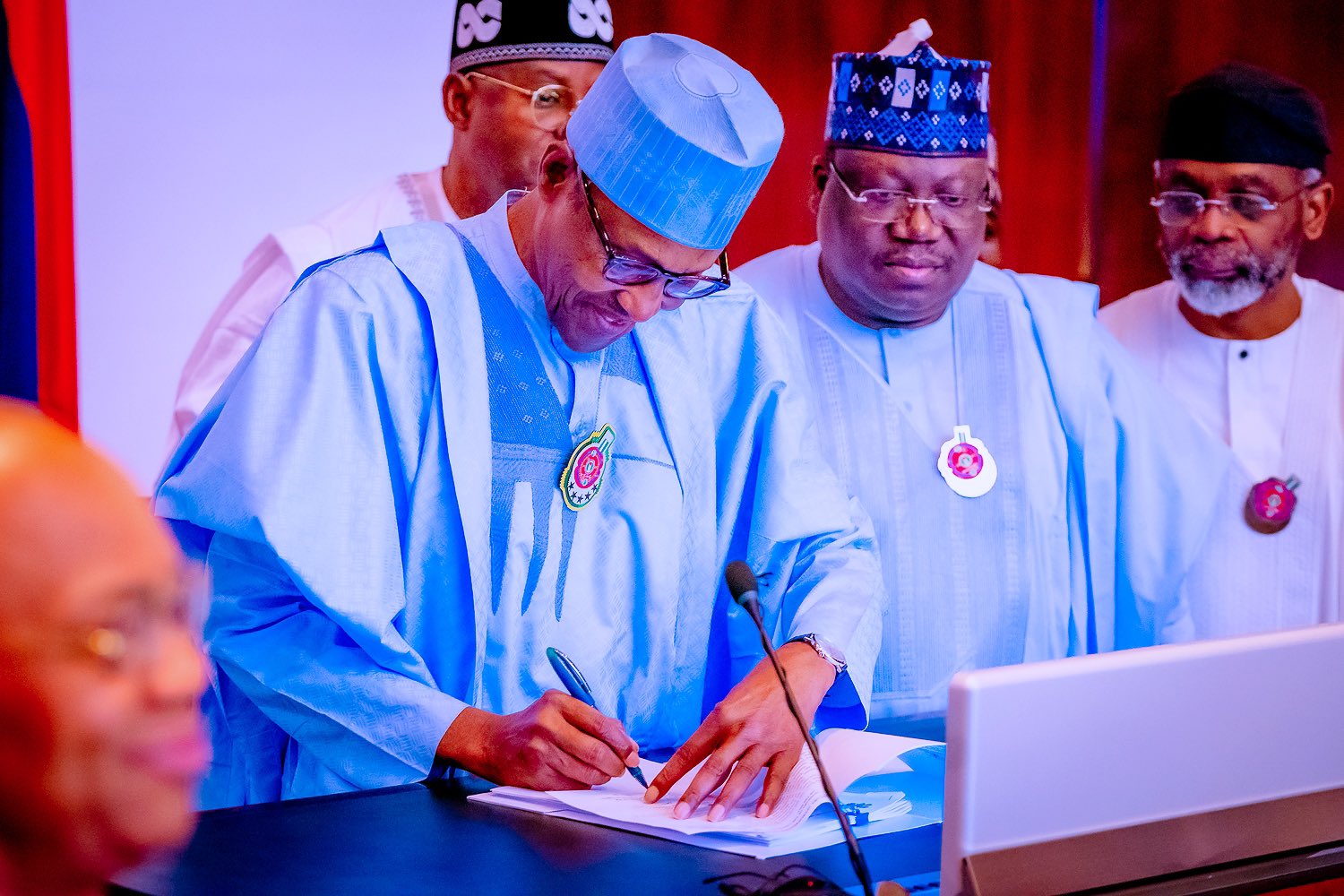News
35 Days to Go: Here are Buhari’s failed promises from 2015 to 2023

Muhammadu Buhari, after unsuccessfully contesting for the Nigerian presidency thrice, was able to garner Nigerians’ trust in 2015 with many promises both in his manifestos and unofficial ones from his campaign army.
Below are some of the promises the president failed to deliver despite numerous claim from him and his aides he has done such.
1. Unemployment
The unemployment rate in Q1 of 2015 prior to Buhari’s taking over power, was 16.6%.
He had in his 2015 manifesto promised to creat of three million jobs per year.
Buhari noted five main ways it would create jobs if re-elected in his 2019 re-election manifesto.
One, in the second term, which Mr Buhari calls the next level, N-Power would engage one million graduates and then there is a promise to skill up 10 million people under a voucher system in partnership with private sector.
Two, several millions of jobs are to be created through agriculture, including having the “Anchor Borrowers’ Programme to support input and jobs to one million farmers; Livestock Transformation Plan to create 1.5 million jobs along dairy, beef, hide and skin, blood meal, crops; and Agriculture Mechanisation Policy with tractors and processors to create 5 million jobs.”
Three, Buhari promised to provide $500 million in funding for the tech and creative industry to create 500 thousand jobs and train 200,000 youth for outsourcing market in technology, services and entertainment.
Four, further jobs would be created with the creation of Regional Industrial Parks and Special Economic Zones, and “Next Level of 109 Special Production and Processing Centres (SPPCs) to spur production and value additive processing (as well as) Tractors and Processors Plan in Each Senatorial District.
Five, Buhari also vows ‘300,000 extra jobs’ for vendors and farmers by increasing the number of children fed under the school feeding programme from 9.2 million to 15 million.
In 2023, as the anti-corruption Caesar prepares to bow out of office, the unemployment rate in the nation has worsened.
As at the fourth quarter (Q4) of 2020, the unemployment rate, according to the National Bureau of Statistics (NBS) was 33.3 per cent.
It is also projected by the Nigerian Economic Summit Group (NESG) to hit 37 per cent in 2023.
KPMG also reported that the Nigerian unemployment rate had increased to 37.7per cent in 2022 and will further rise to 40.6per cent, due to the continuing inflow of job seekers into the job market.
2. Restructuring
One of the key manifestos of the All Progressives Congress, APC, during the 2015 presidential election campaign was to restructure the country for absolute transformation.
In 2022, Buhari kicked against agitations for restructuring the country and state police as a solution to Nigeria’s woes, saying that the agitators are not clear on their demands.
He vowed on June 19 vowed that his administration will not restructure the country, stressing that those agitating for separation and canvassing for restructuring are naive and ignorant of war.
Towards the end of his administration, the Buhari signed 16 constitutional amendment bills; states can now generate, distribute electricity, and own railways and state assemblies/judiciary now have financial autonomy.
Buhari, who also took about 6 months before he appointed a cabinet towards the end of his administration signed a Bill that mandates presidents and governors to appoint ministers and commissioners within 60 days, among others.
In 2023, National Democratic Coalition (NADECO) called to question the motive behind Buhari’s decision to restructure Nigeria towards the closing stage of his administration.
3. Insecurity
A major problem bedeviling Nigeria during the time of Buhari’s campaign was insecurity. During Jonathan’s administration, Boko Haram terrorists were the main perpetrators. They launched offensive attacks in public places and captured parts of some states, particularly in the North-East region.
Perhaps, what may be regarded as the height of their activities then was the abduction of about 276 Chibok girls on April 14, 2014 which generated the #BringBackOurGirls around the world.
Nine years later despite Buhari’s promise to crush the insurgents, 96 Chibok girls still in captivity.
Even though the activities of Boko Haram have diminished, they are presumed to have reformed to become bandits.
Bandits now command levies and taxes as much as N400 million from communities under their captivity.
In South East, secessionists known as members of the Indigenous People of Biafra (IPOB) enforce sit-at-home every Monday while also carrying out terrorism actions.
4. Political Inclusion
The president promises to ensure 35 per cent of his appointments go to females.
He also says he would increase the number of youth for appointments to boards of public agencies.
He also promises “special mentoring programme in governance with young graduates working with ministers and other senior government appointees”.
A report by the Gender Strategy Advancement International, GSAI, has disclosed that women political participation in Nigeria falls below the world and African continental standards.
According to the report, the national average of women’s political participation in Nigeria remain at 6.7 percent in elective and appointive positions, which it said, is far below the global average of 22.5 per cent, Africa regional average of 23.4 percent and West African Sub Regional Average of 15 percent.




